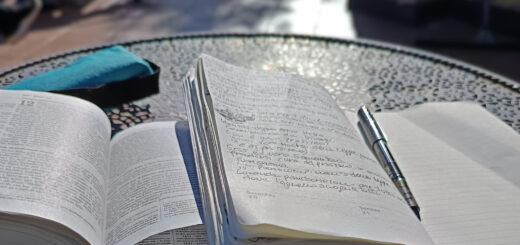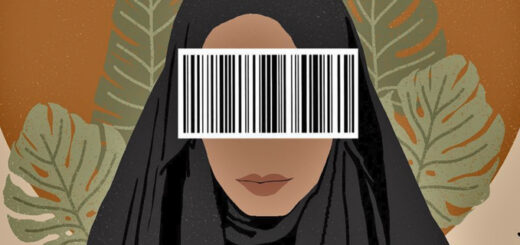"The boys of the Reich" by Dennis Gansel (2004)
.
Luciano Ragusa card proposed during the Cineforum of the Guado in Milan of 9 June 2019
German education and mannerbund sociology. One of the topics that most fascinates and seduces when it deepens the Belle Époque German and the subsequent Republic of Weimar (1919-1933), is the relationship, taken for granted, between the history of the German costume, and the alleged homosexualization of society. In different chats, but also debates, I have often heard that, after all, the command bodies of the future Nazi party were "all of the parishAnd that the demarcation line, in the decades that precede the election of Hitler, between what was considered normal and what was not, was a lot and facie to overcome.
The spaces of freedom that LGBT people have managed to derive themselves despite the "Paragraph 175 ", but the idea that some forms of homoerotic virility are the only methodological tool that allows us to access the understanding of German youth education, and the formation of his elite.
Certainly we can affirm the presence of a strong aesthetic-political persuasion of Greece on Germany: the origin of this infatuation for the classic world we owe it to Johann Winckelmann (1717-1768), whose works have influenced both the history of the art that that of philosophy. Winckelmann, homosexual in turn, probably killed by a Triestine prostitute in 1768, visiting Italy for the first time in 1755, remaining so struggled to decide to transfer definitively.
The furrow traced by the German classicist is then traveled by Theodor Mommsen (1817-1903), one of the most important historians of the 19th century and inventor of new scientific approaches applied to the history of Rome, and by Friedrich Nietzsche (1844-1900), classical philologist and philosopher, whose first work of international relevance concerns a new interpretation of the Greek tragedy.
The point I want to underline is that at the end of the nineteenth century a physical model, an expression of virility, which also assumes moral characteristics: body health and, consequently, its beauty, becomes a border between moral degeneration and one Life conducted in the virtue in which the stereotype of the sexual deviant, never virile, is opposed to another, characterized by harmony and proportion. In essence, male beauty becomes a symbol of the eternal order and a guarantee of an approach capable of remedying a sick world (cf. GL moves, Sexuality and nationalism, Rome - Bari, Laterza, 1984, p. 34).
To the classicist vein we must add a counterculture called Lebensreform (in Italian "life reform"), which involved a colorful world made up of vegetarians, supporters of an alternative medicine, promoters of free love, people contrary to the abuse of alcohol, nudists and assertal of the return to nature.
Many writers, painters and, more generally, artists belonging to this current of thought, found a municipality in Friedrichshegenin, a peripheral neighborhood in Berlin which becomes, also thanks to the railway network, the reference point of life bohemian Not only Berlin, but also European. These "reformists of life" played a fundamental role in supporting the WHK, the center of sexual studies founded by Hirschfeld in 1897, among them, in fact, there were first signatories of the appeal proposed by the sexologist in 1907 to start a parliamentary process that The "paragraph 175" was derubricated which, since 1871, condemned homosexuality.
Anarchism was another rather robust ideological current it had in common with theLebensreformSome distinctive traits, such as an individualistic vision of society and free sexual expression. For many German anarchists, the reference theorist was Max Stirner (1806 - 1856), a philosopher belonging to the Hegelian left, whose thought, expressed in the text The only one and its property (1845), revolves around the idea that the only value that matters is the individual.
For Steiner the single body is the measure of all things, and to it, also called "unique", you must subordinate anything. The man applies to his singularity and does not depend on anyone: everything we know in terms of law, religion, politics, philosophy, are seen by Stirner as fixations comparable to madness; The person cannot be crushed and compressed by the institutions, because it is the only immediate "empirical data", out of any theory. The only cause to serve is that of the ego.
In this perspective, the link between anarchists and the movement for the rights of homosexuals is evident. In any case, the dissenceing represented by their way of being, and the caustic aversion against any form of associations, over time, weakened the ideological scope of these currents of thought, nullifying any struggle for the instances they supported.
Is within this crogiol of situations that the sociology of the Männerbund, German term of difficult translation that we could summarize with the expression: "male community". Becoming very popular at the beginning of the twentieth century, this concept contains in its own shirts different ways of feeling for male, such as sympathy for a patriarchal culture, or the methods of choosing the leadership within a context of men only and also the management of youth groups made up exclusively of males.
The first organization of exclusively male teenagers of Germany, the Wandervogel, formed in 1897, sponsored all kinds of activities for children: hiking, camping, group sports with a strong accent to the independence of young people, responsibility and spirit of adventure. Despite this, the Wandervogel You have its own location, free from the control of adults, within which, managed by the older ones, theatrical skits, music lessons, singing, readings of poems, novels, and the planning of the inevitable excursions in nature, are organized, with related campsites, and incorporated nudism.
One of the reasons for the success of these clubs is traceable in the instinctive reaction to the severe family and school discipline, still a debtor of a Prussian authoritarianism who knew of Stanlio to the young people of the new century. Unfortunately, over the years, principles such as that of the leadership, respect for roles, and other very useful characteristics in those who will make these guys an obedient army.
In addition, another guiding thread that keeps groups united, is a basic misogyny, born in response to a continuous erosion of women compared to the opportunities until that moment reserved for men. When some girls asked to enter the educational groups of the Männerbund, but they were replied that they are taking care of the house and family since the two sexes, at any level, were "immeasurable".
Of course, there were theoretical theoretical Männerbundhomoerotic, in which contacts between teenagers and adults were proposed according to the models widespread in the polis Greek. The character who more than any other promoted this approach was Hans Blüher, attendant of the first Wandervogel And, in turn, initiator of the formation of other groups. From his autobiography we know that he appreciated the homosocial camaraderie, the leadership Charismatic and the body of the kids, which, the latter, for which it was expelled from several clubs.
The interesting thing is that, probably for fear of the consequences relating to paragraph 175, in adulthood, Blüher decides get married even if he never had children. In his writings, however, what tries to demonstrate is that the typical model of the Greek State cities, in which a mature and socially introduced lover teaches the adolescent the rules of the game, could have been imported into twentieth century Germany.
The fact remains that in his life, married or not, his homoerotic imagination continued to play a central role, as evidenced by the fact that he was perpetually surrounded by loved ones young Germans. To save him from an arrest for full -blown homosexual behaviors certainly contributed to saving him his anti -Semitism, given that, against the Jews, he wrote several books that had a discreet diffusion between the 1920s and 1930s. He died in 1955, alone and forgotten by everyone.
to know more
Beach R., Gay Berlin. The German invention of homosexuality, Bompiani, Milan, 2016.
Moved GL, Sexuality and nationalism, Rome - Bari, Laterza, 1984.
Moved GL, The image of man, Einaudi, Turin, 1997.
Moved GL, The culture of Western Europe, Mondadori, Milan, 1986.
Thewelit K., Virile fantasies, The Sadher, Milan, 1997..
The guys of the Reich
The feature film provides a plausible interpretation of the Wandervogel concept, however imbued with the now dominant peculiarities of the Nazi dictatorship. In the European context, the film gets numerous awards, including the best direction at the Bavarian Film Festival, best film at Viareggio Europa Cinema, best film at the Giffoni Film Festival; In the international context, it is awarded at the Hamptons International Film Festival in New York, in the best international film category. From not forgetting, of the lying director, it is the wave (2008), based on the novel of the same name by the writer Todd Strasser, in turn focused on a sociological experiment that occurred in California in 1967, in which, a teacher wants to demonstrate the ease with which authoritarian social structures can impose themselves. Both the text and the film have become classic literature and German youth filmography.
Plot
Germany, 1942 Set the opposite opinion of the parents, the boy sees in this choice the opportunity to emerge from poverty.
.
sheet
Screenplay: Dennis Gansel, Maggie Paren.
Original title: Napola - Elite für den führer.
Music: Angelo Badalamenti.
Country of production: Germany.
Production house: Olga Film GmbH.
Interpreters: Max Riemelt in the role of Friedrich Weimer; Tom Schilling in the part of Albrecht Stein; Jonas Jägermeyr plays Christoph Schneider; Martin Goeres in the role Siegfrid Siggi Gladen; Florian Steter in the part of the Caporalmaggiore Justus von Jaucher; Justus von Dohnanyi plays Albrecht Stein's father; Devid Stiesow in the role Heinrich Vogler.
Year: 2004.
Duration: 110 minutes.






